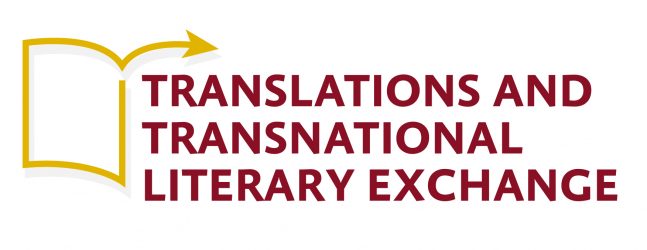Translations, as social and cultural artefacts, have an impact on relations between cultures and literatures as well as on the development of literary systems. Literary translation is linked to social and political circumstances and cultural politics, which means that numerous economic, political, cultural, and social reasons encourage and discourage the circulation of literary texts beyond their geographical and cultural boundaries. Cultural exchange is bound up in power relations between nation-states and languages, thus it is uneven and reflects relations of dominance. Globalization promotes cultural exchange, at the same time exposing the dominance of the English language and the fact that economic imperialism is often accompanied by cultural hegemony.
Literary connections between two cultures are based on translations. Susan Bassnett (1993, 2002), therefore, argues that Translation Studies should play a key role in redefining the discipline of Comparative Literature. Emily Apter (2003, 2006, 2013) holds a similar view and calls for a new, contemporary, comparative literature based on translation. As Itamar Even-Zohar (1990) points out, translations are important not only for individual readers but also for the entire literary polysystem as they actively participate in its creation by introducing new features, models, and compositional techniques. In addition to Apter, Bassnett and Even-Zohar, Steiner (1975), Venuti (1995, 2013), Baker (2010), Chevrel (2006), Spivak (2003) and many others point to the connection between translation and comparative studies.
Literary translation as a part of cultural exchange is also involved in power relations between nation-states and languages. The works of Pascale Casanova (1999, 2002, 2005, 2015) and Gisèle Sapiro (2008, 2009, 2010, 2014, 2015, 2016, 2020) serve as a foundation for examining the circulation of literary production in a global context beyond national borders and as an attempt to determine how power relations between languages are maintained in the field of literary translation.
The goal of this international interdisciplinary conference is to contribute to the discussions
on literary translation in the international circulation of books and ideas. The organizers invite scholars from different disciplines (literary studies, translation studies, cultural studies, sociology, information studies, linguistics, etc.) to contribute with their research to the study of literary translation as a social practice that takes place in a certain context, inseparable from
institutions, power relations, and cultural politics.
In what follows, we present topics, areas of interest, ideas, and guidelines that we consider stimulating for this conference (the list does not pretend to be exhaustive):
- LITERARY TRANSLATION AND THE MARKET
– production, distribution, and reception of literary translations
– the impact of globalization on the market for translated literature
– literary translations as a reflection of economic and political relations
– the position of literary translations in certain publishing houses
– professionalization and working conditions of literary translators
- TRANSLATION AS A VECTOR OF LITERARY (CULTURAL) EXCHANGE
– translations and the creation of a transnational literary field
– literary translation and asymmetrical relations between languages
– literary translations as a vector of intercultural and interlinguistic relations
– the role of intermediaries in transnational literary exchange (translators, publishing houses,
literary agents, editors, scholars)
– translations as an indicator of changes in interliterary exchange
– translations as an indicator of the reconfiguration of literary exchange after the fall of the
Berlin Wall
- SHAPING OF LITERARY CANONS AND NATIONAL CULTURES
– translations and national literary canon formation
– the role of translation in the construction of national cultures
– literary translation and the circulation of intellectual ideas
– the place of translated literature in school curricula
– bilingual and multilingual editions of literary texts
– collaborative literary translation
– literary self-translation
– retranslations
- LITERARY TRANSLATION AND INSTITUTIONS
– institutional financial support for the translation of literary texts (at home and abroad)
– literary magazines and translated literature
– literary festivals and translated literature
– translated literature in public and private libraries
– book series and translated literature
- THE FUTURE OF LITERARY TRANSLATION
– translated literature and digital humanities
– literary translation and new digital tools
– applying network analysis to research in the field of literary translation
Keynote speakers :
Gisèle Sapiro (EHESS, CNRS)
Zrinka Stahuljak (UCLA)
The proposal including a title, an abstract (up to 300 words) and up to 5 keywords in French or English (working languages of the conference) should be sent by email to msindici@unizd.hr and vmiksic@unizd.hr no later than February 1, 2023.
Registration fee is 100 EUR. Early bird payment, 80 EUR. For students and postgraduate
students, 50 EUR. The registration fee does not cover bank transfer costs, accommodation, and transportation costs. The registration fee includes a publication of collected abstracts, refreshments during breaks, reception, and a certificate of participation.
Deadline for fee payment: September 1, 2023
IMPORTANT DATES
Application for participation with submission of the abstract and keywords: February 1, 2023
Notification of acceptance: March 1, 2023
Registration and registration fee payment: June 1, 2023 (Early bird)
Registration and registration fee payment: September 1, 2023
Conference: September 20-22, 2023
Deadline for submitting full papers: December 15, 2023
Contacts: msindici@unizd.hr, vmiksic@unizd.hr
Organizing committee:
Mirna Sindičić Sabljo, University of Zadar
Vanda Mikšić, University of Zadar
Željka Tonković, University of Zadar
Dubravka Saulan, University of Burgundy
Martina Dragija Ivanović, University of Zadar
Bibliography
Apter, E. „Global Translation. The Invention of Comparative Literature“. Critical Inquiry, 29, 2, 2003, 253-281.
Apter, E. 2006. The Translation Zone. A New Comparative Literature. Princeton University Press: New Jersey.
Apter, E. 2013. Against World Literature. On the Politics of Untranslability. Verso: New York.
Baker, M. 2010. Translation Studies. Routledge: New York.
Bassnett, S. 1993. Comparative Literature: A Critical Introduction. Oxford: Blackwell.
Bassnett, S. 2002. Translation Studies. Routledge: New York/London.
Casanova, P. 1999. La République mondiale des lettres. Seuil: Paris.
Casanova, P. 2002. „Consécration et accumulation de capital littéraire. La traduction comme échange inégal“, ARSS, 144, 7-20.
Casanova, P. et al. 2005. Où est la littérature mondiale ? Presses Universitaires de Vincennes: Paris.
Casanova, P. 2015. La langue mondiale. Traduction et domination. Seuil: Paris.
Chevrel, Y. 2006. „La lecture des oeuvres littéraires en traduction: quelques propositions“. L’Information littéraire, 58, 1, 50-57.
Even-Zohar, I. 1990. „The Position of Translated Literature within the Literary Polysystem
Source“. Poetics Today, 11, 1, 1990, 45–51.
Sapiro, G. 2008. „Translation and the Field of Publishing: A Commentary on Pierre Bourdieu’s ‘A Conservative Revolution in Publishing from a Translation Perspective’“. Translation Studies, 1, 2, 154-67.
Sapiro, G. (ur.) 2009. Les Contradictions de la globalisation éditoriale. Nouveau Monde: Paris.
Sapiro, G. 2010. „Globalization and cultural diversity in the book market: the case of translations in the US and in France“, Poetics, 38, 4, 419-439.
Sapiro, G. 2014. „The Sociology of Translation: A New Research Domain“. A Companion to Translation Studies, ur. S. Bermann, C. Porter, Wiley Blackwell, 82-94.
Sapiro G., Pacouret J., Picaud M. 2015. „Transformations des champs de production culturelle à l’ère de la mondialisation“. Actes de la recherche en sciences sociales, 1-2, 206-207, 4-13.
Sapiro, G. 2016. „How Do Literary Works Cross Borders (or Not)? A Sociological Approach to World Literature“. Journal of World Literature, 1, 81–96.
Sapiro, G. 2020. “The Transnational Literary Field between (Inter)-nationalism and Cosmopolitanism”. Journal of World Literature, 5, 481-504.
Spivak, G. C. 2003. Death of a Discipline. Columbia University Press: New York.
Steiner, G. 1975. After Babel. Oxford University Press: Oxford.
Venuti, L. 1995. The Translator’s Invisibility. Routledge: New York.
Venuti, L. 2013. Translation Changes Everything. Routledge: New York.

